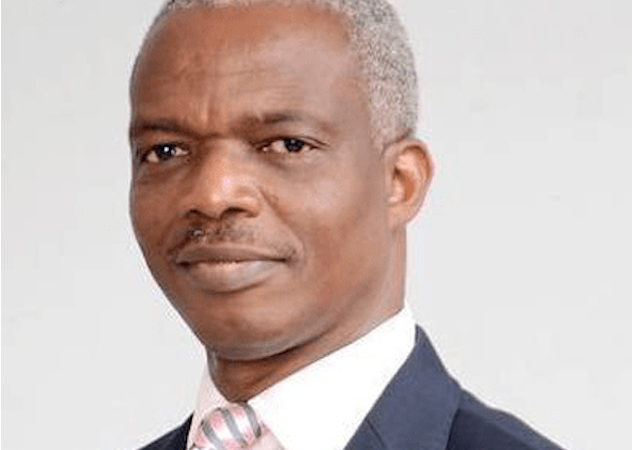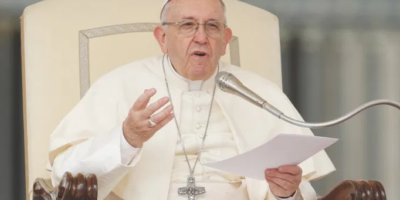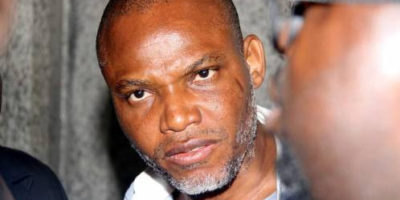Salami: With Debt Service-to-Revenue at 98%, Nigeria’s Borrowing Unsustainable

- Asks FG to sell off N900bn dead assets to enhance fiscal position
- Nigeria’s public debt grows to N35tn, says DMO
Nigeria’s current public debt stock is unsustainable even though the country’s debt-to-Gross Domestic Product (GDP) ratio at 35 per cent seems comfortable, Chairman of President Muhammadu Buhari’s Economic Advisory Council (EAC), Dr. Doyin Salami, has said. Salami also lamented that with debt service-to-revenue ratio at 97.7 per cent (January to May 2021), the country’s public debt profile was unmaintainable.
The assessment comes on the heels of Buhari’s fresh loan request, in a letter to the National Assembly seeking the legislature’s approval of $4.179 billion ($4.054 billion and $125 million) and £710 million external loans.
This is just as the Debt Management Office (DMO) yesterday disclosed that Nigeria’s total public debt, comprising states and federal government debt obligations, grew by 7.75 per cent, from N32.916 trillion in December 31, 2020, to N35.465 trillion as of June 30, 2021.
According to Salami, the country’s debt stock is estimated to hit about N54 trillion when Ways and Means as well as the Asset Management Corporation of Nigeria (AMCON) liabilities and projected fiscal deficit for 2021 are put into consideration.
To improve revenue, therefore, the economist said the government must block leakages, unlock opportunities at state level, improve tax efficiency and coverage, and sell-off dead assets, which are estimated at $900 billion.
Salami, in a presentation on “The State of the Economy,” pointed out that the federal government’s expenditure had been on the increase, and at a faster pace than its revenue. He added that public debt had continued to expand on the back of growing fiscal deficit.
He said from January to May 2021, actual fiscal deficit was N3.01 trillion, representing 53.8 per cent of total budgeted deficit for 2021.
Salami stated,
While overall expenditure has grown by 102 per cent, from N5 trillion to N10.1 trillion between 2015 and 2020, revenue increased by just 15 per cent.
This subdued government revenue is as a result of constraints around domestic production/investment; low tax base, as tax revenue to GDP still revolves around seven per cent; limited effort to explore and unlock opportunities for revenue generation at state level; over-centralisation and issues relating to efficiency in revenue collection.
The economist pointed out that macroeconomic stability, consistency of policy and regulation, sectoral reforms, human capital development, and resolution of the security crisis were key to the economy’s ability to rebound. He also stated that the investment climate in the country currently faced major headwinds, as total foreign investment inflows into Nigeria remained low.
The presidential advisor said foreign direct investment (FDI) inflow was $875 million in the second quarter of 2021, which was the lowest quarterly inflow since first quarter of 2016.
Salami said FDI inflow into Nigeria had revolved around $1 billion in the last five years, adding that FDI inflow in the second quarter of 2021 was $78 million, even lower than Q2 2020.
He said the country’s investment climate was being constrained by macroeconomic instability, policy inconsistency, inadequate infrastructure, insecurity, as well as tough business climate.
Salami said the way forward for the country was for the state Houses of Assembly to help in improving state competitiveness by reallocating spending priorities. He said more emphasis should be given to human capital development and the provision of social amenities for the populace. Among other things, Salami said they serve as champions of Ease of Doing Business, adding that the legislative bodies can review existing legal impediments to doing business in the states.
The steps, according to him, would include amending tax laws; reforming procurement laws to support indigenous private sector; improving access to construction permits; and making it easier to register properties.
Nigeria’s Public Debt Grows to N35tn
Meanwhile, Nigeria’s total public debt, comprising states and federal government debt obligations, rose by 7.75 per cent, from N32.916 trillion in December 31, 2020, to N35.465 trillion as of June 30, 2021.
The federal government carries 83.07 per cent of the debt burden while the states and the Federal Capital Territory (FCT) account for 16.93 per cent
Domestic debt accounts for 68.40 per cent while the external component stands at 38.60 per cent.
Director General of the Debt Management Office (DMO), Ms. Patience Oniha, who gave the figures during a virtual debt management presentation to the media yesterday, said while the total external debt component stood at N12.706 trillion as of December 31, 2020, it rose to N13.711 trillion as of June 30, 2021.
Oniha also said total domestic debt increased from N20.210 trillion as of December 2020, to N21.754 trillion as of June 30, 2021.
A breakdown of this gives N17.632 trillion for the federal government, while N4.122 trillion is for states and the Federal FCT.
Of the N13.711 trillion external debt, the federal government only accounts for N11.828 trillion while the states and FCT make up the balance of N1.883 trillion.
Explaining the latest move by the federal government to secure $4.054 billion, €710 million and $125m fresh borrowing, Oniha stated that it had nothing to do with President Muhammadu Buhari as an individual.
According to her, approval has already been secured from the Federal Executive Council (FEC) and the National Assembly under the under the 2018-2020 External Borrowing (Rolling) Plan to finance capital projects.
Oniha noted that there were entrenched processes and statutory instruments, including annual budgets, anchored on the Medium Term Expenditure Framework (MTEF), which allowed borrowing.
Buhari had on Tuesday asked the Senate to approve $4.054 billion, €710 million and $125 million fresh external loans to fund projects captured under the 2018-2021 borrowing plan.
The president said the projects listed in the borrowing plan were to be financed through sovereign loans from the World Bank, French Development Agency (AFD), China-Exim Bank, International Fund for Agricultural Development (IFAD), Credit Suisse Group and Standard Chartered/China Export and Credit (SINOSURE).
He said the loans would be used to fund federal and state governments’ projects that cut across key sectors, such as infrastructure, health, agriculture and food security, energy, education and human capital development, and COVID-19 response efforts.
Oniha also spoke on the Central Bank of Nigeria (CBN) overdrafts to the federal government. She said at the beginning of the year, they stood at N10 trillion, and must have increased by now. When added to the current debt profile, it would certainly increase the debt figures, she stated.
But she noted that the process of adding the CBN loans had commenced, adding that the approval of the Federal Executive Council and the National Assembly would be secured to do that.

Justin Nwosu is the founder and publisher of Flavision. His core interest is in writing unbiased news about Nigeria in particular and Africa in general. He’s a strong adherent of investigative journalism, with a bent on exposing corruption, abuse of power and societal ills.













